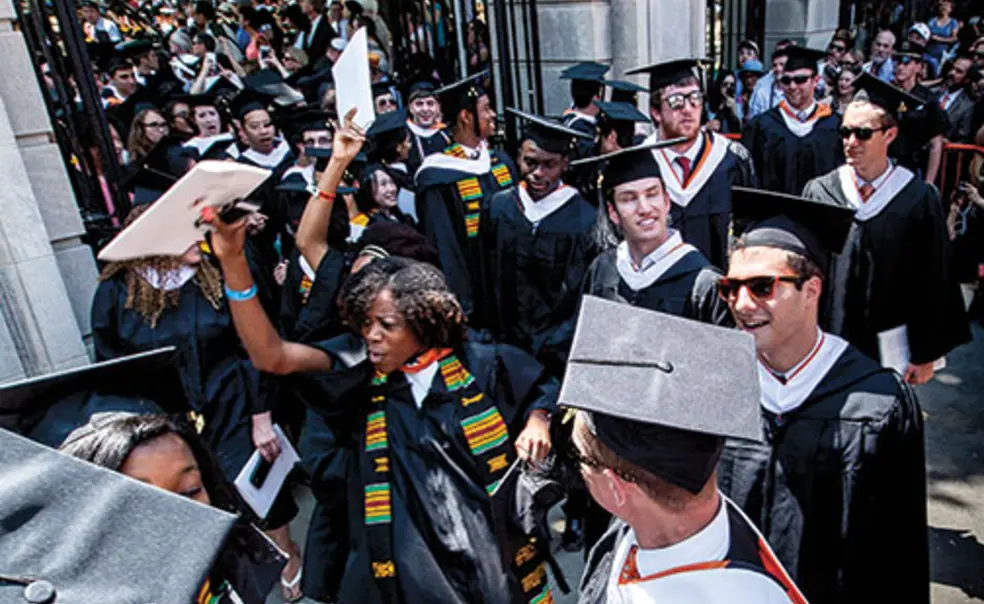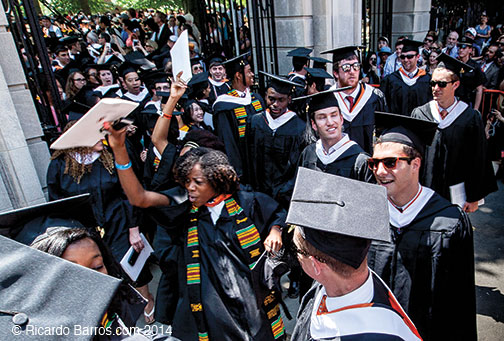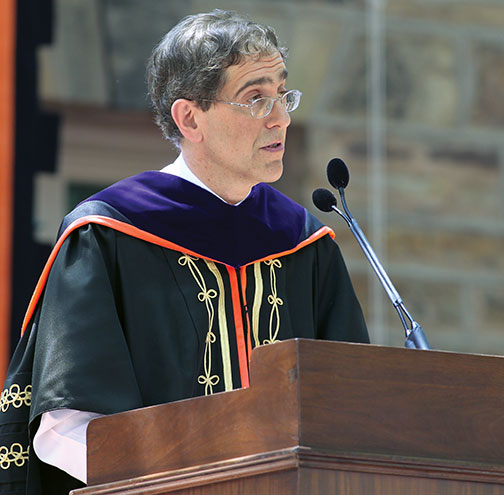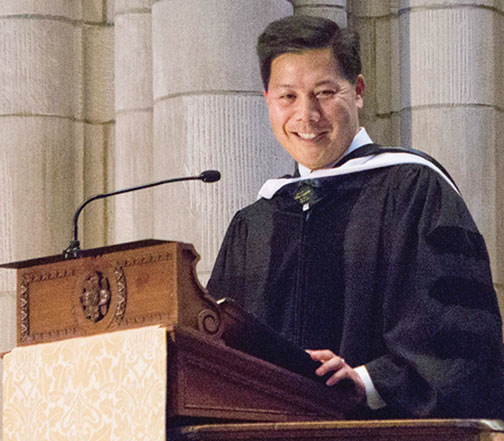The Magic of Tradition
Commencement rituals for Class of ’14 offer light — and more serious — advice
Presiding over his first Commencement, President Eisgruber ’83 reminisced about his own days as an undergraduate and the alchemy involved in some of Princeton’s most treasured rituals, such as the superstition — only recently embraced — that students who walk through FitzRandolph Gate before earning their degrees will not graduate with their class.
“When I was a student here in the 1980s, my classmates and I strolled merrily through the gate in both directions, with nary a second thought,” Eisgruber told a crowd of about 10,000 seated on the sun-dappled front lawn of Nassau Hall. “Traditions germinate in surprising ways on this magical campus, and, when they take root, they quickly seem as old and venerable as Nassau Hall itself.”
Traditions ruled over the three days of Commencement rituals, when the University awarded 1,244 undergraduate degrees (1,021 bachelor of arts and 223 bachelor of science in engineering) and 996 graduate degrees (389 Ph.D.s and 607 master’s degrees). As Eisgruber, the University’s 20th president, carried on those customs, he described another less exalted but oft-repeated practice: the college graduate who moves back in with his parents.
Eisgruber quoted an 1879 Princeton graduate, Tommy Wilson, who, after earning his degree, felt “at sea amid crosswinds, and a bit seasick.” Eventually, though, this wayward graduate earned a Ph.D. in political science, dropped his first name in favor of his middle name — Woodrow — and became Princeton’s 13th president and later, president of the United States. “Your path beyond Princeton, like Tommy Wilson’s path, is likely to take many twists and turns,” Eisgruber told the graduates, adding, “Twists and turns bring discovery.”
Speaking at Baccalaureate, deputy secretary of the U.S. Department of Labor Christopher Lu ’88 looked to the past and the future, telling members of the Class of 2014 that their Princeton education is an inheritance. “Unlike a gift, there are strings attached to an inheritance,” he said. “There are responsibilities implied. An inheritance is something you grow and pass on to the next generation.”
At Class Day, Eisgruber pointed out that the morning’s lighthearted tone had its roots in 1856, when the ceremony first was held, but noted that by 1962, a sober tenor had been embraced. The event swung back to comedy in 2001 when Bill Cosby was invited as the speaker. This year’s address, by Al Gore, featured both jokes (the former vice president proclaimed he was “once named one of the 100 funniest men on C-SPAN”) and a serious admonition to take concrete action to address climate change. As with civil rights, Gore said, meaningful action requires that much of society agrees that the problem exists and has the determination to solve it.
“The will to act is itself a renewable resource,” Gore said. “The ice is melting and the water is rising, and we’re still struggling to establish the reality of what is happening. ... We have to resist merchants of doubt who are hired to confuse people to the point where they don’t know what is the truth.” He continued, “Young people who take the time to get a quality education and empower themselves with the kind of skills that you have acquired here at Princeton can change the world. The fact that the world has resisted change thus far is of no import.”
Gore was made an honorary member of the Class of 2014 and presented with a beer jacket featuring a tiger’s curled tail. The new graduates will don those jackets at Reunions to come, carrying forward another treasured Princeton tradition.















No responses yet